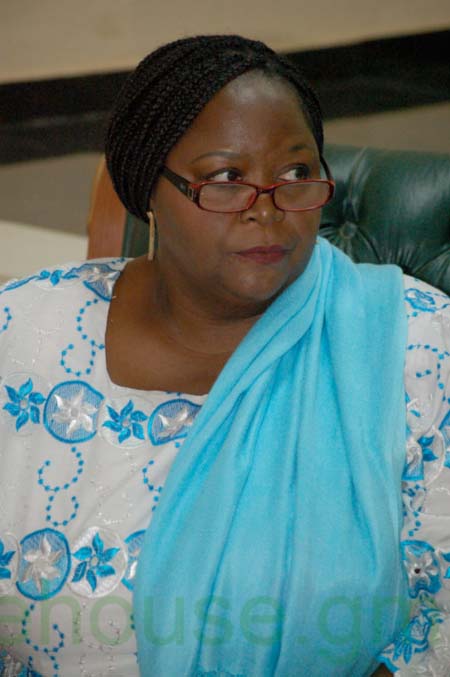
The
Food and Agriculture Organisation (FAO) and The Gambia government recently
signed a community-based dry-land forest management project to the tune of
US$3.07 million.
The
five-year project, funded by the Global Environment Facility (GEF) and co-financed
by FAO, the Gambia government, ADWAC and NACO, would build on the successes of
the past projects and programmes.
The
project is designed to halt environmental degradation and the growing threat of
desertification in The Gambia. It will
empower communities with the legal security, skills and knowledge necessary to
sustainably manage their natural resources and conserve the remaining
biodiversity.
The
project was signed by the Minister of Environment, Climate Change and Natural
Resources, Pa Ousman Jarju on behalf of The Gambia government, and the FAO
country representative, Perpetua Katepa-Kalala, on behalf of the UN agency.
Speaking
at the signing ceremony, the FAO country representative said desertification
and land degradation are major environmental issues faced by The Gambia.
“This
is highly pronounced in the northern regions of the country,” she said, adding
that at the beginning of the 20th century, most of the Gambian territories were
still covered by dense forests.
“By
the year 2010, the forest cover was about 44% of the total land area of which
only 1.1 % is closed forest and nearly 70% degraded,” she said.
“This
is a major threat to poverty reduction, eradication of hunger and continued
development of the affected communities, especially on the north of the
country.”
The
FAO rep said the forest management project is expected to address the
underlying driver for degradation of dry land forests such as unsustainable and
uncontrolled resources extraction and forest fires, increasing population
pressure and lack of adequate socioeconomic livelihood opportunities.
The
project will be implemented in the areas north of the River Gambia: North Bank
Region, Central River Region, Upper River Region north and Lower River Region.
Apart
from reducing forest degradation, the project would strengthen policy and
institutional capacity for sustainable dry land forest management,
community-based sustainable dry land forest management and rehabilitation, and
project monitoring and evaluation and information dissemination.
For
his part, Minister Pa Ousman Jarju said since 2010, The Gambia government had
been working closely with FAO to come up with a project concept.
“Today,
we are happy the project has been approved for full implementation,” he said.
He
noted that FAO’s support to the government to remedy the negative impact of the
deforestation “is a step in the right direction”.
Minister
Jarju said that over the years, the government in partnership with the FAO had
made some strive in community forest management.


